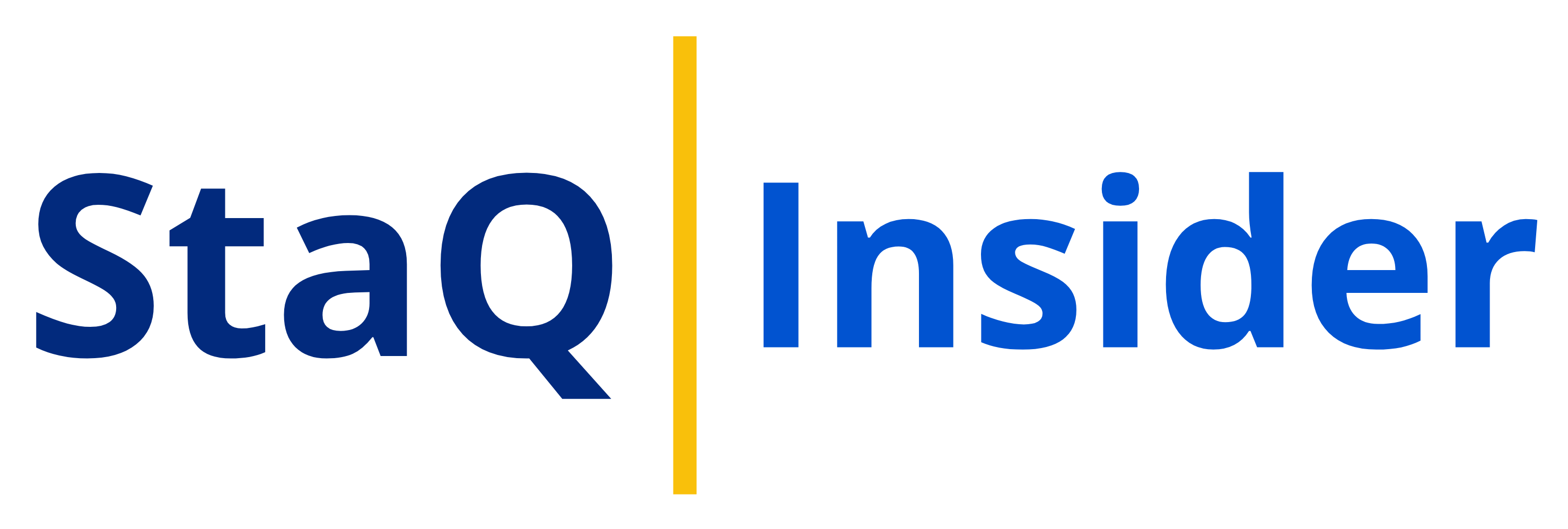Forget the boring surveys and messy data collection. It’s 2024, and there are powerful tools to take your feedback game to the next level. Dive into our exclusive guide to discover the 15 most sought-after online survey tools and form builders of the year, offering a blend of free and paid options.
What Are Online Survey Tools?
Online survey tools are software applications or web-based platforms that allow users to create, distribute, and analyze surveys or questionnaires over the internet. These tools provide a convenient and efficient way to gather data and feedback from a large number of people, regardless of their geographic location.
At their core, online survey tools empower businesses, researchers, and organizations to gather valuable insights and feedback from their target audiences efficiently. These tools provide a user-friendly interface for building surveys, allowing you to choose from a wide range of question types, apply logic and branching, and customize the look and feel.
Key Use Cases of Online Survey Tools
Here are some key use cases of online survey tools:
- Customer Satisfaction & Feedback: Gauge customer sentiment, identify areas for improvement, and measure the success of initiatives. (e.g., post-purchase surveys, NPS score surveys)
- Market Research: Gather valuable insights from target audiences to inform product development, marketing strategies, and pricing decisions.
- Employee Engagement: Understand employee sentiment, measure satisfaction, and identify areas for improvement in company culture or work processes.
- Event Feedback: Collect feedback on conferences, workshops, or other events to improve future experiences.
- Academic Research: Conduct surveys for research projects, gather data from a wider audience, and streamline data collection.
- Lead Generation: Capture leads by offering gated content in exchange for completing a survey, allowing you to qualify and target leads more effectively.
- Product Development: Gather user feedback on new features or product ideas to ensure they meet customer needs.
What are the Benefits of Online Surveys?
Beyond the general ease and convenience, online survey tools offer a wealth of technical benefits that can significantly enhance your data collection and analysis process. Here are some key advantages:
- Improved Data Quality & Reduced Errors: Online surveys eliminate manual data entry, minimizing typos and human error. Features like skip logic ensure questions are relevant to each respondent, further enhancing data accuracy.
- Real-Time Data & Analytics: Responses are automatically collected and stored electronically, allowing for real-time data visualization and analysis. This enables faster identification of trends and facilitates informed decision-making.
- Advanced Data Analysis Capabilities: Many online survey tools offer powerful built-in analytics features. These can include data filtering, segmentation, cross-tabulation, and advanced statistical analysis. This allows you to delve deeper into your data and uncover hidden insights.
- Integration with Other Tools: Many online survey tools integrate seamlessly with CRM, marketing automation, and data analysis platforms. This allows you to combine survey data with other customer information for a more holistic view.
- Data Branching & Logic: Online surveys enable you to create dynamic branching logic. This allows you to tailor the survey experience based on a respondent’s previous answers, making it more engaging and collecting more relevant data.
- Improved Accessibility & Global Reach: Online surveys can be accessed from any device with an internet connection, making them more accessible to a wider audience. This allows you to gather data from a geographically diverse population.
- Automated Reporting & Distribution: Powerful tools can automate report generation, saving you time and ensuring consistency. You can also schedule surveys to be automatically distributed at specific times or upon certain triggers.
Why Create Surveys Using a Survey Tool?
While you can create surveys with pen and paper, survey tools offer a wealth of advantages. They streamline the process, eliminate manual errors, and unlock powerful features:
- Efficiency: Build surveys faster with drag-and-drop tools and pre-built templates.
- Accuracy: Automated data collection minimizes typos and ensures consistency.
- Analysis Power: Leverage built-in analytics for insightful reporting and data visualization.
- Engagement: Create interactive surveys with multimedia elements and branching logic for a better user experience.
- Accessibility: Reach a wider audience with mobile-friendly surveys and easy distribution options.
Survey tools transform data collection from a chore into a strategic advantage for your business.

15 Best Paid & Free Online Survey Tools and Form Builders in 2024
Here are some of the best options available in 2024, ranging from paid platforms offering advanced features to free tools that provide basic survey capabilities.
Paid Online Survey Tools and Form Builders
-
SurveySparrow (https://surveysparrow.com/)
- Offers a conversational interface, branching logic, and advanced reporting with a focus on engagement.
- Pricing: Starts at $19/month (billed annually)
- Features: Multi-page forms, NPS scoring, video embedding, custom branding.
- Pros: Engaging design, good reporting, ease of use.
- Cons: Limited free plan, some advanced features require higher tiers.
-
Typeform (https://www.typeform.com/)
- Known for its beautiful, conversational forms that feel more like an interactive experience.
- Pricing: Starts at $29/month (billed annually)
- Features: Logic jumps, integrations with popular tools, question piping.
- Pros: Excellent design, good for lead generation, easy to use.
- Cons: Limited question types, free plan has branding.
-
ProProfs Survey Maker (https://www.proprofssurvey.com/)
- Part of a suite of business tools, ProProfs offers a survey builder with features for gamification and quizzes.
- Pricing: Starts at $19/month
- Features: Question randomization, gamification elements, detailed reporting.
- Pros: Affordable, good for employee engagement surveys, quiz creation.
- Cons: Interface can feel dated, limited free plan.
-
JotForm (https://www.jotform.com/signup/)
- A versatile form builder with a wide range of features and integrations.
- Pricing: Starts at $39/month
- Features: Drag-and-drop form creation, online payments, conditional logic.
- Pros: Highly customizable, many integrations, good for complex forms.
- Cons: Interface can be overwhelming for beginners, free plan has limitations.
-
Qualtrics (https://www.qualtrics.com/)
- An enterprise-grade survey platform used for complex research projects and customer experience measurement.
- Pricing: Contact Qualtrics for a quote
- Features: Advanced analytics, survey panel access, global reach.
- Pros: Powerful features, robust reporting, good for large-scale surveys.
- Cons: Expensive, complex interface, not ideal for simple surveys.
-
Alchemer (https://www.alchemer.com/)
- A user-friendly platform with features for employee engagement, customer satisfaction, and market research.
- Pricing: Starts at $49/month (billed annually)
- Features: Skip logic, mobile-friendly surveys, white labeling.
- Pros: Easy to use, good customer support, advanced features.
- Cons: Limited free plan, pricing can be high for small businesses.
-
QuestionPro (https://www.questionpro.com/)
- A feature-rich platform with multilingual capabilities and advanced reporting tools.
- Pricing: Starts at $35/month
- Features: Offline data collection, 360-degree feedback surveys, data visualization tools.
- Pros: Comprehensive features, good for international surveys, data analysis tools.
- Cons: Interface can be cluttered, free plan has limitations.
-
Zoho Survey (https://www.zoho.com/survey/)
- Part of the Zoho suite of business applications, Zoho Survey offers a good balance of features and affordability.
- Pricing: Starts at $25/month
- Features: Team collaboration tools, custom domains, real-time reporting.
- Pros: Integrates with other Zoho apps, affordable pricing, good for team projects.
- Cons: Limited free plan, some advanced features require higher tiers.
-
SurveyLegend (https://www.surveylegend.com/)
- A feature-rich platform with a focus on data security and compliance.
- Pricing: Starts at $49/month
- Features: PCI compliance, HIPAA compliance, advanced branching logic.
- Pros: Secure platform, good for handling sensitive data, advanced customization options.
- Cons: Steeper learning curve, pricing may be high for some users.
-
SogoSurvey (https://www.sogolytics.com/)
- A user-friendly platform with features for customer satisfaction surveys, employee feedback, and market research.
- Pricing: Starts at $25/month
- Features: Question piping, skip logic, mobile-optimized surveys, custom branding.
- Pros: Easy to use, good reporting and data analysis, affordable pricing.
- Cons: Limited free plan, some advanced features require higher tiers.
Free Online Survey Tools and Form Builders
Here are some popular free survey tools and form builders to consider:
-
Google Forms (https://www.google.com/forms/about/)
- A simple and easy-to-use survey tool included with Google Drive.
- Pricing: Free
- Features: Basic question types, real-time data collection, automatic data analysis in Google Sheets.
- Pros: Completely free, easy to use, integrates with other Google apps.
- Cons: Limited customization options, fewer features than paid tools.
-
Microsoft Forms (https://forms.office.com/)
- Free survey tool included with Microsoft 365 subscriptions.
- Pricing: Free with Microsoft 365 subscription
- Features: Similar features to Google Forms, branching logic, team collaboration tools.
- Pros: Easy to use, integrates with other Microsoft apps, good for teams using Microsoft 365.
- Cons: Requires Microsoft 365 subscription, limited free plan.
-
Typeform Free Plan (https://www.typeform.com/)
- Free plan of the popular Typeform platform with some limitations.
- Pricing: Free
- Features: Up to 3 surveys with 10 questions each, beautiful design interface.
- Pros: Excellent design, good for user experience, limited free plan is still functional.
- Cons: Limited features compared to paid plans, branding on free surveys.
-
SurveyMonkey Free Plan (https://www.surveymonkey.com/)
- Free plan of the well-known SurveyMonkey platform with basic functionalities.
- Pricing: Free
- Features: Up to 10 questions per survey, limited answer choices, basic reporting.
- Pros: Recognizable brand, good for simple surveys, free plan allows some data collection.
- Cons: Very limited features, free plan surveys have SurveyMonkey branding.
-
FreeOnlineSurveys (https://freeonlinesurveys.com/)
- A completely free survey tool with basic features and branding.
- Pricing: Free
- Features: Unlimited surveys and questions, basic question types, limited customization options.
- Pros: Completely free, no limitations on surveys or questions, good for quick and simple surveys.
- Cons: Limited features and question types, branding on all surveys.
Disclaimer: The information provided about online survey tools and form builders is for informational purposes only, based on publicly available information at the time of writing (May 8, 2024). Pricing, features, and other details may change. It is recommended that you visit the official website of each tool for the most up-to-date information.
Read Buying Software: Essential Tips for Evaluating and Selecting Software
Key Features to Consider When Choosing an Online Survey Tool:
Beyond the basic functionalities, here are some key technical features to evaluate when selecting an online survey tool:
-
Question Types & Customization:
Look for a tool offering a wide range of question types beyond the standard multiple-choice and Likert scale. Consider features like matrix questions, branching logic, piping (using previous answers in later questions), and advanced formatting options for a more engaging experience.
-
Data Security & Compliance:
Ensure the platform adheres to industry-standard security protocols like SSL encryption and data privacy regulations like GDPR and CCPA. Look for features like two-factor authentication and data anonymization options.
-
Data Export & Integration:
Consider how easily you can export your survey data into various formats like CSV, SPSS, or Excel for further analysis in other tools. Integration capabilities with your existing CRM, marketing automation, or data analysis platforms are also valuable.
-
API Access & Customization:
Advanced users might require an API (Application Programming Interface) for programmatic access to survey data and functionality. This allows for custom integrations and automation within your workflows.
-
Offline Data Collection:
Does the tool allow for offline data collection? This can be useful for situations where internet access is limited, such as in-person events or field research. Look for tools that can synchronize data once the device regains internet connectivity.
- Data Filtering & Segmentation: Powerful tools offer advanced filtering and segmentation capabilities to analyze specific subsets of your data. Look for features that allow you to filter based on demographics, response times, completion status, or specific answer choices.
-
Data Visualization & Reporting:
Does the tool offer robust data visualization tools to present your results in an easy-to-understand format? Consider features like customizable charts, dashboards, and the ability to create exportable reports with your branding.
-
Mobile-Friendliness & Device Responsiveness:
Ensure your survey renders flawlessly and provides a seamless experience across different devices, including desktops, tablets, and smartphones. This is crucial for maximizing your response rates.
-
Scalability & User Management:
Consider the tool’s ability to handle large volumes of data and multiple users. Look for features like role-based permissions, user management tools, and the ability to manage multiple surveys simultaneously.
By focusing on these technical features, you can choose an online survey tool that offers the power and flexibility to meet your specific data collection and analysis needs.
Finding the Perfect Survey Tool Just Got Easier with StaQ.ai
Choosing the right online survey tool can feel overwhelming. That’s where StaQ.ai steps in!
StaQ.ai is your one-stop shop for streamlining the software selection process. Our intelligent platform leverages real user data and expert insights to match your business needs with the perfect survey tool.
So, stop wasting time wading through endless options. Let StaQ.ai be your trusted partner in navigating the ever-evolving software landscape.





